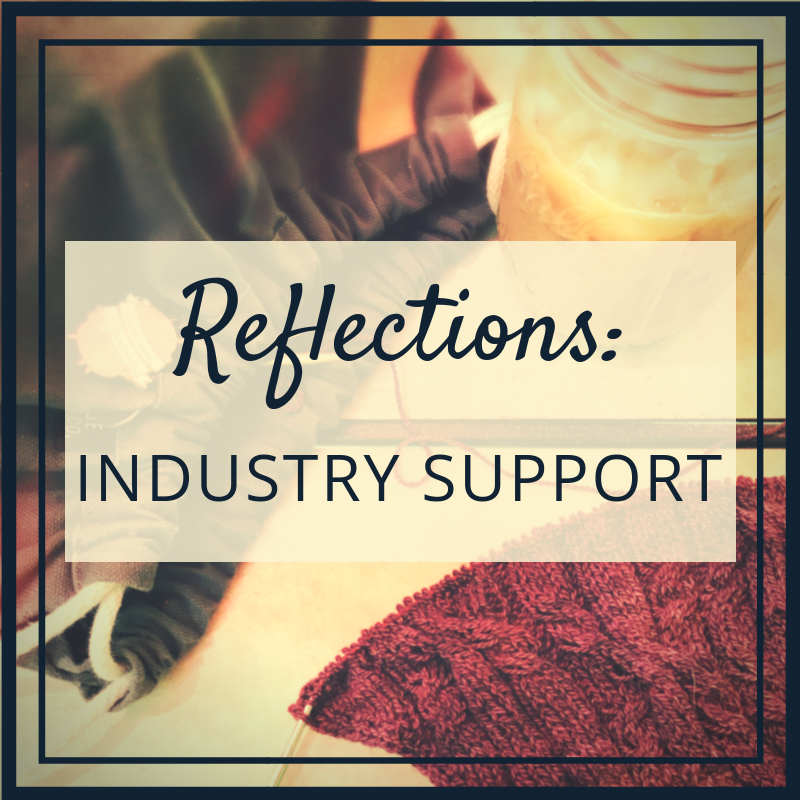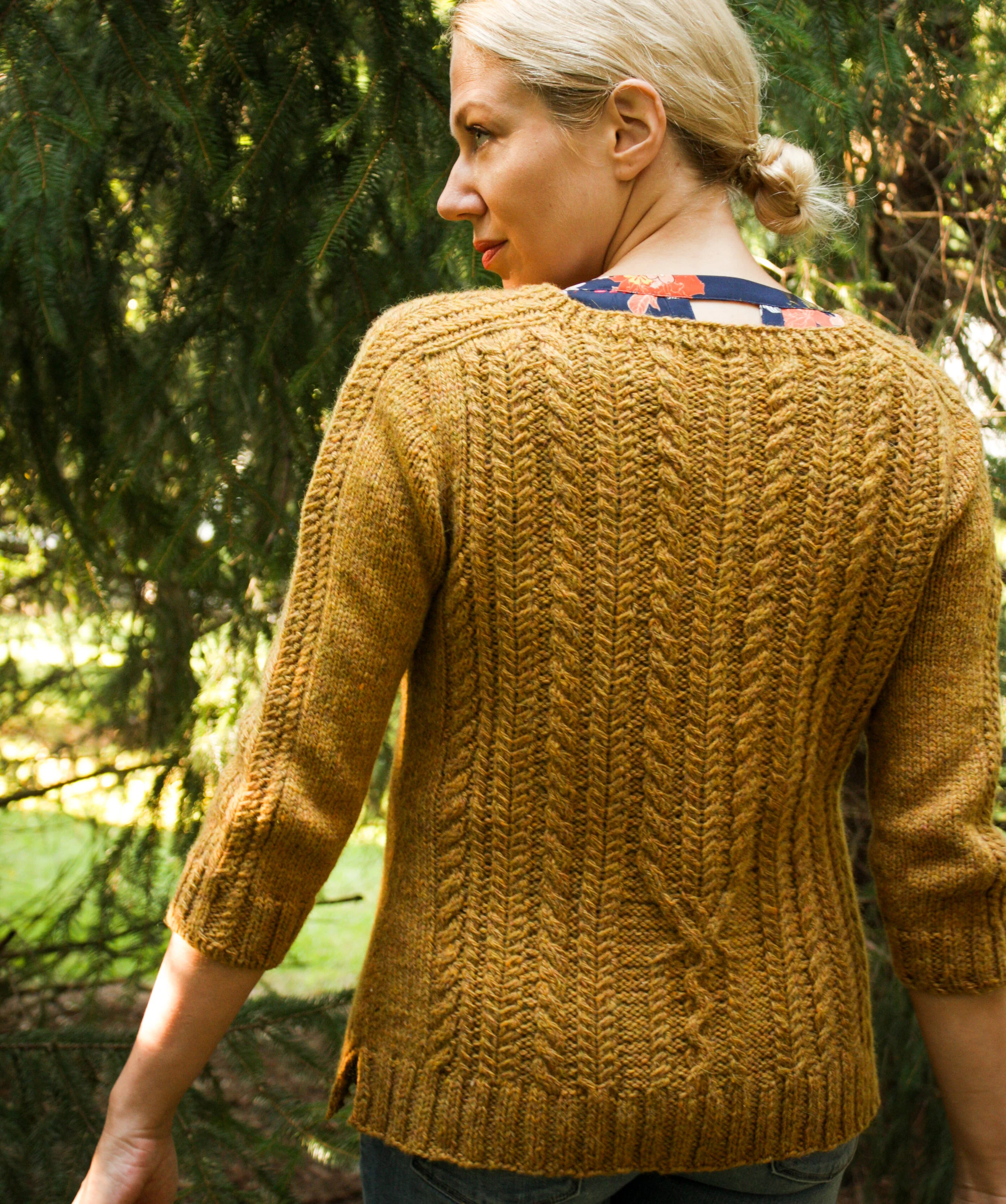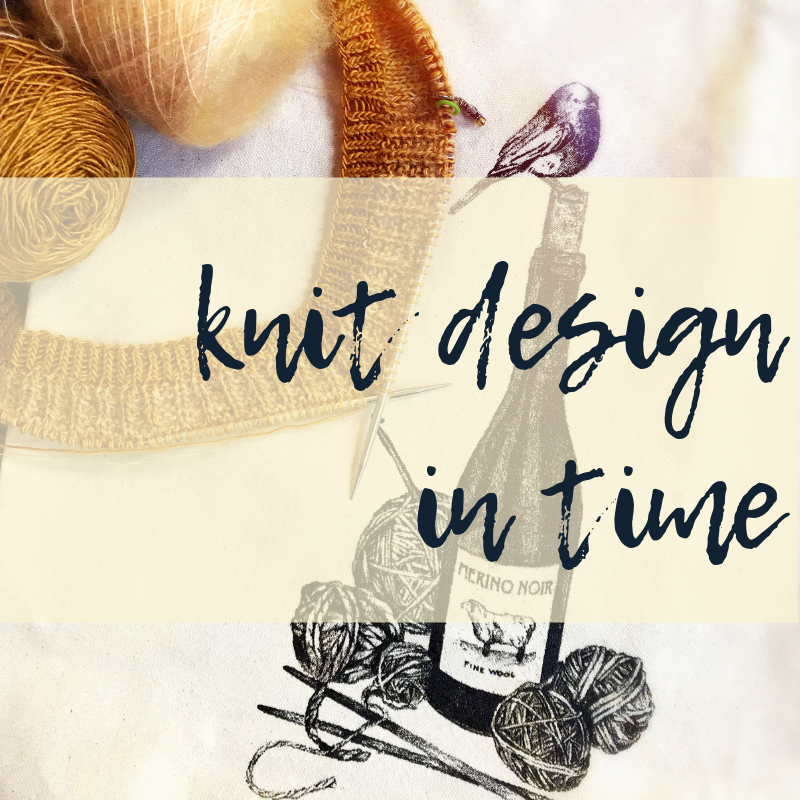Who loves ya? Reflections on industry support
When I started designing I, perhaps naively, assumed that if I supported someone in the industry--designed with their yarns, promoted their shop, shared their designs--they would return the favor.
Seems reasonable, right? I mean, it’s not completely outlandish—knitters are nice!
So, being idealistic and assuming that we’re all here to help each other, I've often been too quick to give my patterns away--whether for event promotions, or to yarn companies I thought might be interested in them, or to LYSs that might want to make a shop sample.
For example, I once created multiple samples for a design, using different yarns for each of the samples. I had purchased these yarns on my own (ie, I did not receive free yarn support). When the pattern was published, I sent a copy of the pattern to each of the yarn companies I used, hoping they might want to create their own samples. And while all of them were friendly and enthusiastic when responding, the majority ultimately did nothing to promote the pattern--no social media sharing, no newsletter promo, and certainly no creating their own samples. So I spent money on their yarn, used it in a design, gave away the pattern and got exactly nothing in return.
And I’ve made the same mistake dozens of time—I've used the same dyers for a number of designs, never realizing I didn't see a single one of my samples at their shows. I've promoted local yarn shops' events and watched as they had numerous big name designers in house for trunk shows and workshops--but I've never gotten an invite or seen any of my designs on display. I've sponsored KALs and other events and didn't stop to think that the host really only promoted the biggest sponsors. I just kept pushing, thinking persistence would pay off and eventually all of my support would engender reciprocal support.
It’s disheartening, but it’s also my fault--I assumed they would return the favor, and I assumed they would want to support someone else in the industry. But this is a tricky thing about a woman-heavy industry that often seems more like a crafting community--it's easy to forget that these are actual businesses, and businesses have a bottom line. Businesses do not exist to be friendly and supportive (although, of course, some are); businesses exist to make money. And many businesses that I’ve dealt with simply made the decision that promoting my patterns wasn’t the way to make money.
It feels personal, when our industry is so small (comparatively) and close-knit (sorry), but it's not. It's business.
(I have not seen the Godfather, but I have seen Tom Hanks in You've Got Mail.)
It’s a hard truth to swallow, but as a smaller scale designer (in terms of reach and popularity), for many businesses, I’m not a smart investment—that is, the likely return on supporting MediaPeruana Designs would not be equal to or greater than the time, effort, materials and/or money invested in that support. And given how small most businesses are in this industry, there’s not a lot of wiggle room for risky investments.
And while I am disappointed that this is the decision those businesses have come to, it’s made me realize that I need to do a better job of considering my own investments. If I sign up to sponsor an event and donate 5 pattern downloads for prizes, that’s equivalent to investing ~$50 in the event. Can I reasonably expect the event to provide enough exposure or promotion to drive $50 worth of pattern sales? Or if I design a sweater that uses $125 worth of Dyer X’s yarn (assuming, in this case, that I paid for the yarn), can I expect Dyer X to drive enough customers my way to sell 18 copies of the pattern? If not, then that’s not something I should be investing it.
That’s not to say that all collaborative relationships in the fiber arts industry have to be exactly equal, or that there’s no room to just be supportive without expecting anything in return, but rather that I need to consider all the implications and possible outcomes of a collaboration and make sure I’m truly ok with those outcomes before embarking on it (and that I certainly need to stop making business decisions based on my own idealistic assumptions!).
Do your work in the fiber arts industry? What has been your experience collaborating with other businesses?
If you enjoyed this post, you may also like . . .






